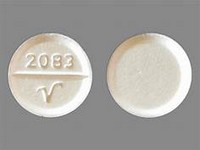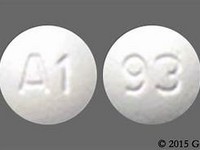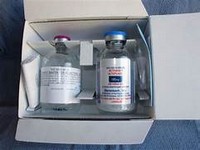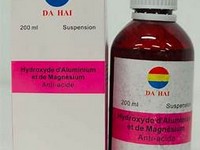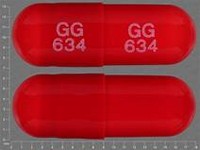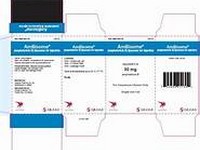Telithromycin
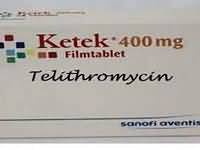
CLINICAL USE
Antibacterial agent
DOSE IN NORMAL RENAL FUNCTION
800 mg daily
PHARMACOKINETICS
Molecular weight :812 %Protein binding :60–70 %Excreted unchanged in urine : 12 Volume of distribution (L/kg) :1.9–3.9half-life – normal/ESRD (hrs) :2–3/14.64 DOSE IN RENAL IMPAIRMENT
GFR (mL/MIN)
30–50 Dose as in normal renal function 10–30 600 mg daily (given as 800 mg/400 mg alternating days) <10 : 600 mg daily (given as 800 mg/400 mg alternating days) DOSE IN PATIENTS UNDERGOING RENAL REPLACEMENT THERAPIES
CAPD :Unknown dialysability. Dose as in GFR <10 mL/min HD :Dialysed. Dose as in GFR <10 mL/min . (Give 800 mg dose after dialysis sessios)HDF/high flux :Dialysed. Dose as in GFR <10 mL/min . (Give 800 mg dose after dialysis session)CAV/VVHD :Dialysed. Dose as in GFR 10 to 20 mL/min IMPORTANT DRUG INTERACTIONS
Potentially hazardous interactions with other drugsAntibacterials: concentration reduced by rifampicin – avoid during and for 2 weeks after rifampicin therapyAntidepressants: concentration reduced by St John’s wort – avoid during and for 2 weeks after St John’s wort therapyAnti-epileptics: concentration reduced by carbamazepine, phenytoin, phenobarbital and primidone – avoid during and for 2 weeks after treatment Antifungals: avoid in combination with ketoconazole in severe renal and hepatic impairmentAntipsychotics: increased risk of ventricular arrhythmias with pimozide – avoid concomitant useAntivirals: avoid concomitant use with amprenavir, atazanavir, indinavir, lopinavir, nelfinavir, ritonavir, saquinavir and tipranavir in severe renal and hepatic impairmentAnxiolytics and hypnotics: inhibits metabolism of midazolam (increased sedation)Ciclosporin: possibly increased ciclosporin levels Diuretics: increased eplerenone concentration – avoid concomitant useTelithromycin and ergot derivatives should not be co-administered due to possibility of ergotismIvabradine: possibly increased ivabradine concentration – avoid concomitant useLipid-regulating drugs: increased risk of myopathy with atorvastatin and simvastatin – avoid concomitant useSirolimus: increased sirolimus levels – avoid concomitant use Tacrolimus: possibly increased tacrolimus levels ADMINISTRATION
Reconstition
– Route
Oral Rate of Administration
–Comments
– OTHER INFORMATION
Do not give to people at risk of QT interval prolongation due to its potential to prolong the QT intervalOral bioavailability is approximately 57% after a single dose of 800 mgIn patients with renal and hepatic impairment the dose should be reduced to 400 mg dailyMonitor for signs of liver toxicity AUC increased 2-fold if GFR<30 mL/min .
See how to identify renal failure stages according to GFR calculation
See how to diagnose irreversible renal disease
Home




